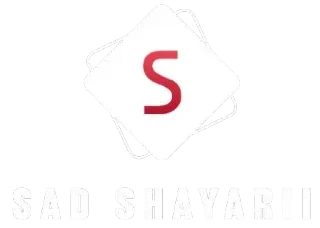The General Awareness section in banking exams is often underestimated until it becomes the deciding factor between selection and rejection. This section of the paper assesses awareness of ongoing developments, government schemes, and international affairs, all within a strict time limit. Although it may be less time-consuming to attempt, it is no less demanding in terms of preparation.
Many aspirants rely on fragmented resources and random reading to cover this section. This leads to confusion, information overload, and poor information retention. A tool like a banking current affairs PDF helps streamline preparation by effectively organising information. This article highlights the most common mistakes made when preparing for the GA section.
-
Ignoring a Consistent Study Routine
A common mistake is treating general awareness as a last-minute subject. Unlike other sections that require practice-based improvement, this one depends on regular reading and retention. Candidates who ignore it until a few weeks before the exam often end up memorising without understanding, which leads to poor performance.
Daily exposure to news, banking updates, and economic developments builds a long-term memory bank. Without consistent study, even the best-curated materials fail to deliver results. A disciplined routine helps in absorbing facts better and improves recall during exams.
-
Depending on Too Many Sources
It’s easy to fall into the trap of downloading multiple apps, visiting countless websites, and following various channels for daily news. While the intention is to stay informed, this approach often backfires. Too many sources mean duplication of topics, inconsistency in coverage, and confusion over what to prioritise.
Candidates benefit more from one or two reliable and structured sources. A banking current affairs PDF designed for exam aspirants saves time and helps avoid repetition. It consolidates relevant news, highlights essential data, and maintains a logical flow for easy revision.
-
Focusing Only on Current News, Ignoring Banking Awareness
The GA section is not just about what happened this week. It includes banking terms, historical decisions by regulatory bodies, fiscal policies, and product launches. Aspirants who study only current headlines risk missing questions that test foundational knowledge of the financial system.
Banking awareness adds depth to preparation. Understanding terms like CRR, SLR, and repo rate, as well as the functions of financial institutions, can make a significant difference in your financial understanding. A balanced approach covering both current and static knowledge is crucial for a well-rounded attempt.
-
Not Practising MCQs Alongside Reading
Reading news or notes helps clarify concepts, but retention improves only when the material is tested. Many aspirants read regularly but avoid practicing questions due to overconfidence or lack of time. This leads to a gap between knowledge and performance.
Solving multiple-choice questions after reading ensures active recall and highlights areas where you need improvement. Timed quizzes simulate exam pressure and train the mind to choose the correct option quickly. This habit builds familiarity with question patterns and reduces the likelihood of second-guessing in the actual test.
-
Not Revising What You’ve Already Covered
A significant oversight among aspirants is treating current affairs as a “read once and move on” subject. With daily updates piling up, information can fade quickly if not reviewed regularly. Using compiled tools, such as a banking current affairs PDF with revision-friendly formats, makes it easier to revisit and refresh key points.
Grouped topics, bold highlights, and timeline-based summaries support long-term retention and reduce last-minute stress. This IBPS current affairs PDF is designed to help with both revision and quiz-based practice. The content features well-structured news coverage, concise points, and clear tables to facilitate understanding.
Resources like a banking current affairs PDF offer structured, exam-oriented content that can significantly enhance preparation. Candidates who avoid the mistakes mentioned above often find themselves better prepared and more confident in tackling the GA section. Consistency, smart resource use, and regular testing are the keys to pushing your score past the cutoff.







